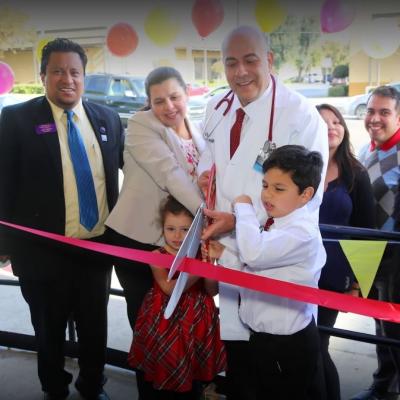Discovering the prevalence of allergies in California sheds light on the challenges faced by many residents in this diverse and geographically rich state. From pollen-filled springtime air to pet dander lingering in homes, allergies can disrupt daily life and impact overall well-being. In this article, we delve into the most common allergens affecting Californians and provide invaluable advice from family doctors on managing and alleviating allergy symptoms.
1- Pollen Allergies: Allergies to pollen from trees, grasses, and weeds are prevalent in California, especially during spring and fall when plants release pollen into the air.
2- Mold Allergies: Mold spores thrive in California's mild and damp climate, leading to allergic reactions in susceptible individuals.
3- Dust Mite Allergies: Dust mites are common indoor allergens, and California's relatively dry climate can cause dust mite particles to become airborne.
4- Pet Allergies: Allergies to pet dander, particularly from cats and dogs, affect a significant number of people in California.
5- Insect Sting Allergies: Allergic reactions to insect stings, such as those from bees, wasps, and fire ants, can be severe in some individuals.
6- Food Allergies: Common food allergies, such as to peanuts, tree nuts, shellfish, milk, eggs, and soy, are prevalent in California, as in other regions.
Family doctor advice for managing allergies typically includes the following:
1- Allergy Testing: If you suspect you have allergies, your family doctor may recommend allergy testing to identify the specific allergens causing your symptoms. Skin prick tests and blood tests are common methods used to determine allergens.
2- Avoidance: Once the allergens are identified, your family doctor will advise you on ways to minimize exposure. For example, keeping windows closed during high pollen seasons, using air purifiers, and regularly cleaning the home to reduce dust and mold.
3- Medication: Over-the-counter or prescription antihistamines, nasal corticosteroids, decongestants, and eye drops may be recommended to manage allergy symptoms.
4- Immunotherapy: For severe or persistent allergies, your family doctor might suggest allergy shots (subcutaneous immunotherapy) or oral/sublingual immunotherapy to desensitize your immune system to specific allergens.
5- Emergency Action Plan: If you have severe allergies, your family doctor may advise you to carry an epinephrine auto-injector (EpiPen) and develop an emergency action plan to manage potential anaphylactic reactions.
6- Education: Your family doctor will educate you about allergy management, trigger avoidance, and the proper use of medications.
7- Follow-Up: Regular follow-up visits with your family doctor will help monitor your allergies' progress and adjust the treatment plan as needed.
It's important to consult with a qualified healthcare professional, such as a family doctor or allergist, to receive personalized advice and treatment for your specific allergies. Please note that allergy trends and medical guidelines may have evolved since my last update, so it's essential to refer to up-to-date medical sources for the latest information on allergies in California.










 And then Add to Home Screen.
And then Add to Home Screen.